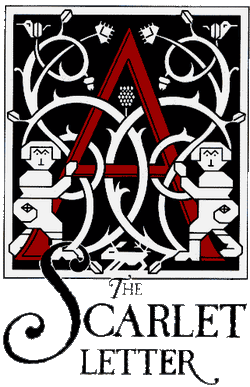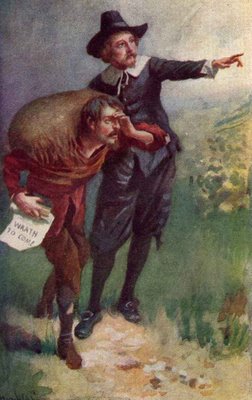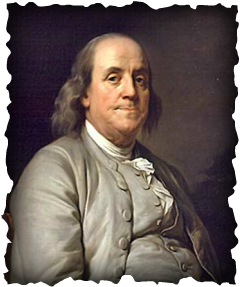
Quite a different read than the others on the blog so far, but I figured I would post a little blurb here. I'm very interested in learning more about the "classical education" method. I'm planning on Homeschooling my future kiddos and I read a book a while ago called the Thomas Jefferson Education by Oliver DeMille. I won't go into to full detail here, you really just have to read the book to learn more about it, and I HIGHLY recommend it. It doesn't just talk about homeschooling but it talks about our school system today and how all schools could improve if they adapted this classical/leadership education method.
If you want to learn more, pick up that book, it's an interesting and quick read!
Part of learning more about the classical education approach is reading more classics! I have a list put out by DeMille of all the top classics out there and this was one of many on the list.
Well I can't go into every detail of the book or the plots or anything, but here's what I found interesting or "took from it." First off, Puritan culture is so unique and so much focus is put on being sinless on earth because for them, the earth is a sort of pit stop on the way to heaven. So they try to rid their community of all sin. Hester Prynne, was forced to be publicly humiliated and forced to wear a letter "A" the rest of her life to remind herself, and everyone else, of her sin (Adultery). Yet, after that experience in her life, she continued on, remaining in the same community. She grew and became a better woman. She found she could now critically look at things in her culture that maybe weren't right. Whereas others never questioned the rule of the "governors."
Now, I don't think that this was Hawthorns intent or one the "main themes of the book" but I couldn't help relating this story to sin in our life, and how we have a huge need for Jesus Christ. We all are sinners, every one of us, thankfully our culture doesn't put us on a platform and announce every one of our sin's to the whole world. But what if they did? What if someday we have to stand on a platform, not before our community, but before a God who has the authority to show mercy or give out justice? Each of us must come to a point where we realize that there is nothing that we can personally do to allow us to be in the same company as a perfect God in Heaven.("...For all have sinned and fall short of the glory of God" Romans 3:23) Hester had to stand up there and get mocked and jeered at before her whole community. We are dirty and filthy and some of our lives are in complete opposite of what God wants for our lives. We know we are sinning because we often go against what our conscience says is right, we break even the 10 laws that God set up for us to follow in his Holy Word. That's why we must come to a point where we acknowledge we are sinners and are in need of a Savior. Then all we have to do is accept that Jesus Christ stood on that platform, perfect, for us, before God.
John 3:16-18 says, "For God so loved the world that He gave his only begotten Son, that whoever believes in him shall not perish, but have eternal life. For God did not send the Son into the world to judge the world, but that the world might be saved through Him. He who believes in Him is not judged; he who does not believe has been judged already, because he has not believed in the name of the only begotten Son of God."
*Attention* do we really understand that? Do you mean, that he died for me? That I don't have to stand on that platform and receive the punishment I deserve?????? YES!!!!! It's true! He was perfect and he took on our sin, was placed on a cross, crucified, humiliated, mocked, forsaken by his Father, by his own people, and even by some of his closest friends; and he did that all for us. For you. For me. And all we have to do is accept it. Grace, pure Grace at it's finest moment.( "The Law came in so that the transgression would increase; but where sin increased, grace abounded all the more, so that, as sin reigned in death, even so grace would reign through righteousness to eternal life through Jesus Christ our Lord." Romans 5:20-21)
I urge you to read more about this Savior Jesus. Pick up the Bible and if you don't know where to start, start at the Gospel of John. Dive into it, and realize that the man you read about did all that for you, and for anyone who chooses to accept His gift of grace. Romans 6:23 says "For the wages of sin is death but the free gift of God is eternal life in Christ Jesus our Lord."
I know some of you literary scholars out there, can not believe that I read The Scarlet Letter and that's all I "got" out of it. Now, that's not entirely true, there are many other interesting connections to sin, to Adam and Eve, the nature of sin and more nuggets like that. I think that it's probably because Easter is approaching and I can't stop thinking about the Grace given to me by Christ. I'm so thankful for His sacrifice. I love what John Newton said, "My memory is nearly gone but I remember two things. That I am a great sinner, and Christ is a great Savior." I pray that if someday my memory fails me, that those are the two things I remember as well. Thanks for reading!



 RSS Feed
RSS Feed